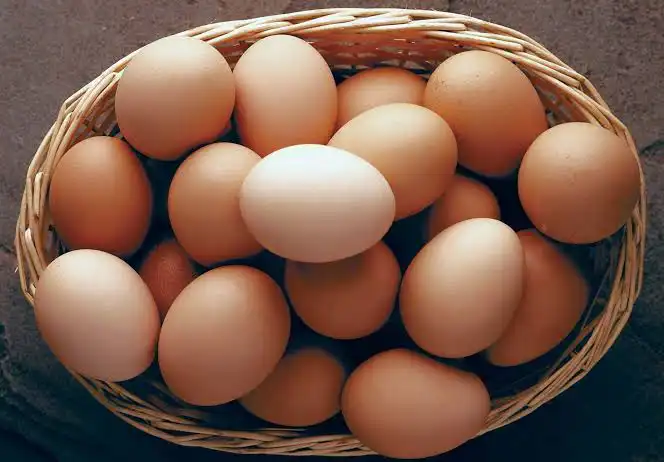Are Eggs Halal? A Detailed Guide

In Islam, food must adhere to specific guidelines to be considered halal, or permissible. This includes not only the types of food but also how they are prepared and sourced.
Eggs, commonly consumed in many cultures, also fall under these dietary guidelines. But are all eggs halal? The answer depends on the source of the egg and, in some cases, the method of preparation.
Are Eggs Halal?
Yes, eggs from animals that are naturally halal, such as chickens, ducks, and fish, are also halal to consume. These eggs are an excellent source of protein and nutrients and are widely available in many parts of the world.
On the other hand, eggs from haram animals, such as reptiles and birds of prey, are considered impermissible according to most Islamic scholars. It’s also important to avoid controversial dishes like balut, which are haram due to their association with maytah.
Let’s delve into the Islamic rulings regarding different types of eggs, whether they’re universally halal, and what to consider when choosing eggs for consumption.
The Permissibility of Eggs in Islam
When thinking of eggs, the first thing that likely comes to mind is the humble chicken egg. But there are many other types of eggs consumed worldwide, from fish roe in sushi to duck eggs, quail eggs, and even exotic options like turtle eggs.
Not all eggs are treated the same in Islamic dietary law, so it’s important to understand what makes an egg halal or haram.
According to Islamic teachings, food is divided into two categories: halal (permissible) and haram (forbidden). For an egg to be considered halal, it must come from an animal that is also halal.
For example, a chicken, duck, or fish is halal, and so are their eggs. On the other hand, an egg from a haram animal, like a snake or an eagle, would also be considered haram. The permissibility of consuming eggs is directly linked to the nature of the animal they come from.
READ ALSO: Are Pringles Halal or Haram? A Detailed Investigation
Eggs from Halal Animals
Muslim scholars agree unanimously that eggs from permissible (halal) animals are also halal to consume. These eggs, like the animals themselves, are considered pure and lawful.
The Prophet Muhammad (PBUH) emphasized that lawful food is a blessing, and eggs from halal animals fall under this category.
Here are examples of eggs that are halal to eat:
- Birds: chicken, duck, goose, turkey, quail, pigeons, ostrich.
- Fish: fish roe, caviar, tobiko.
These eggs are not only lawful but are commonly used in many global cuisines. Whether you’re having scrambled eggs for breakfast or enjoying sushi with fish roe, these are all permissible in Islam.
If you’re looking to increase your protein intake, halal eggs are an excellent and versatile option. They are also widely available and affordable, making them an easy addition to your halal diet.

Eggs from Haram Animals
On the other hand, scholars have stated that eggs from impermissible (haram) animals should not be consumed. This includes animals like reptiles and birds of prey, as both the animals and their eggs are not considered halal.
The reasoning stems from Islamic principles, which dictate that animals deemed harmful or impure should not be consumed in any form, including their eggs.
Examples of haram eggs include:
- Reptiles: snake, turtle.
- Birds of prey: eagles, hawks, vultures.
Most scholars agree that these eggs are haram because the animals themselves are impermissible to eat. However, in the Shafi’i school of thought, there are exceptions where some eggs, particularly from reptiles, may be permissible under certain circumstances, except for those from snakes.
This ruling is based on the potential harm some reptiles can cause, which is why these eggs are typically avoided.
Eggs from Unusual Sources
It’s worth noting that while eggs from haram animals are unlikely to end up on your plate, in some parts of the world, unusual types of eggs are considered a delicacy.
For example, in Nicaragua, turtle eggs are a common part of the traditional diet. Despite their popularity in such regions, consuming turtle eggs would be haram according to most Islamic scholars.
As a Muslim traveler, it’s important to be aware of these cultural differences and avoid haram food, even if it is presented as a local specialty.
Blood Spots in Eggs: Are They Haram?
A common question that arises regarding eggs is whether the presence of blood makes them haram. You’ve likely encountered this scenario: you crack open a seemingly fresh egg, only to find a tiny spot of blood. Does this mean the egg is haram?
According to Islamic scholars and resources such as Islamqa.org, the presence of a small blood spot does not make the egg impure or haram, as long as the egg itself is not spoiled.
The blood spot typically results from a ruptured blood vessel during the formation of the egg and is considered natural.
The USDA also confirms that blood spots are not harmful and pose no health risk. However, if the egg is visibly rotten or unfit for consumption, it should be discarded, as spoiled food can be harmful.
What About Unlaid Eggs?
Unlaid eggs are those that are found inside a hen during slaughter. These eggs vary in size and may not have fully formed shells.
According to Hanafi scholars, unlaid eggs are halal to eat, even if the hen was not slaughtered according to Islamic rules (dhabiha).
The reasoning is that these eggs are considered a natural by-product of the hen and do not require additional rulings beyond those applied to regular eggs.
This makes unlaid eggs permissible in various contexts, such as when a slaughtered hen is found to contain eggs that were not yet laid. As long as the hen is halal, these eggs can also be consumed without hesitation.
Balut: The Controversial Egg Dish
If you’ve ever traveled to Southeast Asia, particularly the Philippines, you may have come across balut, a fertilized duck or chicken egg that contains a developing embryo.
Balut is often boiled and eaten directly from the shell, with the embryo being partially formed. Although this dish is considered a delicacy in certain cultures, it is haram in Islam.
Scholars, including the Standing Committee for Issuing Fatwas, have ruled that balut is impermissible (haram) because it contains a chick that is considered a maytah (something that died without proper slaughtering).
Islam prohibits the consumption of maytah, and this ruling is applied to balut since the embryo has developed to the point where it resembles a living being.






